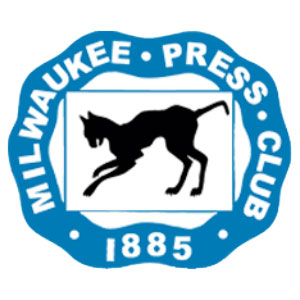Weekly Fiscal Facts are provided to Wisconsin Newspaper Association members by the Wisconsin Policy Forum, the state’s leading resource for nonpartisan state and local government research and civic education. The Wisconsin Policy Forum logo can be downloaded here.
Milwaukee city officials have pursued significant policing reforms amid the national debate during the past year, but further opportunities may include expanding violence prevention initiatives and crisis response, and bolstering whistleblower protections, critical incident reviews, and community reporting.
As calls for police reform further intensified during the last year, the Wisconsin Policy Forum was asked by Milwaukee Mayor Tom Barrett to conduct research that would help frame additional reform discussions. This research explored current policies of MPD as they relate to prominent police reforms being suggested or pursued locally or nationally — as well as how Milwaukee compares to five peer cities: Baltimore, Kansas City, Mo., Memphis, Minneapolis, and Tucson.
It is important to note that the report analyzes the content of MPD policies and protocols but does not speak to MPD practices.
We hope these findings will help drive constructive debate about potential policing and public safety reforms both in our state’s largest city, as well as in other communities. Key findings from the report include:
- Little action has occurred so far to defund police nationally. Minneapolis is the only peer city we analyzed that redirected funding from its police department budget in 2021, and that $8 million shift was much more modest than what its city council had originally considered.
- Milwaukee’s specialized co-responder crisis intervention teams don’t have the capacity to respond to all relevant calls. The teams, comprised of behavioral health professionals and specially trained police officers, respond to certain MPD calls. But these efforts are not as expansive as in some peer cities, and the city is considering additional strategies to divert certain police calls to trained clinicians.
- Milwaukee’s violence prevention efforts have expanded in recent years but are not as robust as those in some peer cities. The Office of Violence Prevention has a budget of $3.7 million, compared to similar offices in Minneapolis and Baltimore with budgets of $6.7 million and $19.4 million respectively.
- Milwaukee’s use-of-force policies have been strengthened and are similar to those of peer cities. Actions taken by Milwaukee’s Fire and Police Commission in December 2020 strengthen MPD’s use-of-force policies and bring the department in line with the recommendations of the 8 Can’t Wait campaign, a frequently cited national advocacy effort.
- MPD does not publish data on its use of no-knock warrants. MPD leaders say the use of no-knock entries has declined in recent years and rules governing the use of this practice have been strengthened, but they have not been prohibited and data on their use has not been released.
- Milwaukee lacks civilian participation to review critical incidents. MPD maintains a review board of only department members and a separate committee that reviews officer conduct. Baltimore, Memphis, Minneapolis, and Tucson have review boards comprised primarily of community members, and Kansas City’s Office of Community Complaints plays a similar role.
- MPD lacks a formal whistleblower protection policy for police officers. Though MPD’s Code of Conduct states that officers “will not be punished” for reporting a violation of the Code, MPD protocols lack an explicit whistleblower policy that defines that protection and support for its officers, as exists or is being developed in Baltimore, Kansas City, and Memphis.
This information is provided to Wisconsin Newspaper Association members as a service of the Wisconsin Policy Forum, the state’s leading resource for nonpartisan state and local government research and civic education. Learn more at wispolicyforum.org.



